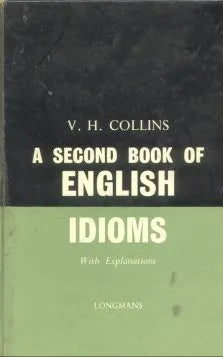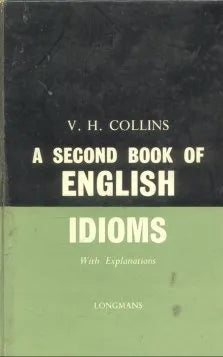LIBRO USADO
A second book of english idioms – V. H. Collins – Longman – 1961 – Dura
1 en existencias
No se pudo cargar la disponibilidad de retiro
Título: A second book of english idioms
Autor: V. H. Collins
Edición: 1961
Editorial: Longman
Estado del libro: Muy Bueno
Medidas: 12,7 x 18,8 cm
Colección: _
Encuadernación: Dura
Páginas 256
Peso: 280 gramos
Género del libro: Idioma - Ingles
Idioma del libro: Ingles
Isbn10: -
Isbn13: -
Compartir en redes




Descripcion del libro:
**A second book of english idioms**: A Second Book Of English Idioms - With Explanations
Preface:
The main principles on which this book has been compiled are similar to those of its predecessor, A Book of English Idioms. For the title the word English has been kept, although a number of foreing, especially French and Latin, phrases, are included, because, with their adoption in ordinary English speaking and writing, they can be regarded as virtually an element of our language.
As before, the idioms selected have usually been those in most frequent use today. Occasionally, however, it has seemed interesting, for at all events the older generations of readers, to include some that only within living memory have become obsolescent or obsolete.
Those who know the previous book are asked to excuse the following restatement of some principles governing also the aims and methods of this sequel.
In studying idioms one is often confronted, apart from any question of the current meaning of an expression, by the problem of its origin or allusion. As Pearsall Smith pointed out, there are many phrases of which even specialists have not been able to find a certain explanation. A factor in the formation of an idiom must often have been a desire for euphony, alliteration, rhyme, or repetition. Moreover Pearsall Smith, referring to what he calls 'the expressiveness of irrelevant phrases', seggests that they often show a breaking loose, a love for the absurd, a reluctance to submit to reason, so that the human mind seems to prefer irrelevance as appealing to the imagination and adding to a phrase's vividness and charm.




